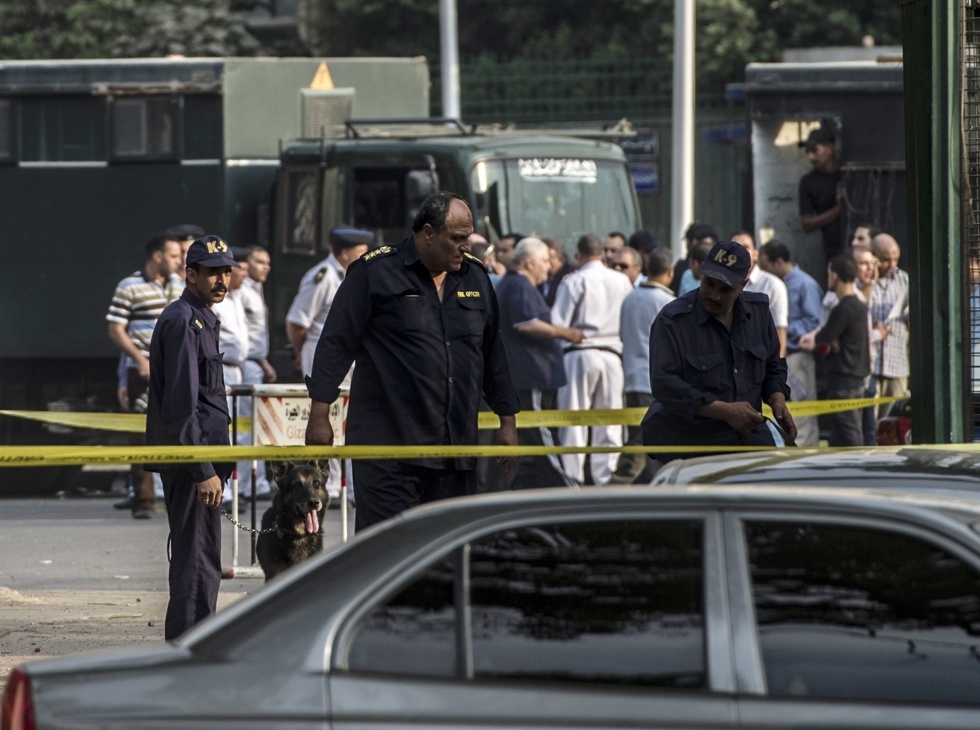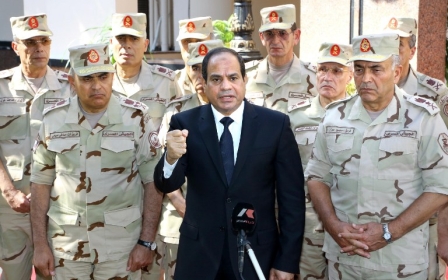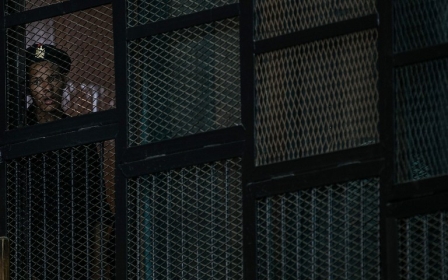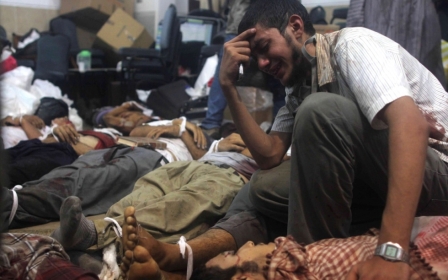Egypt bomb wounds woman near Cairo presidential palace

A bomb blast just 100 metres from Cairo’s presidential palace wounded a female passer-by early Thursday only a few hours after a train bomb killed at least five people, news sites reported.
The improvised explosive device was placed underneath Al-Quba bridge, near the Quba presidential palace, where police and traffic officers stand, according to the state-run Ahram Gate news site. Security officials had placed a cordon around it, but it exploded before they could defuse the device.
The injured woman was taken to a nearby military-run hospital.
This bombing follows an attack on a train north of the Egyptian capital late on Wednesday, in the city of Menoufia, which killed two policemen and at least three civilians, the state-run Ahram Online news site reported. Fifteen people were reported injured.
Policemen had been inspecting the bomb inside the train carriage when it exploded, Agence-France Presse reported.
Dozens of policemen and soldiers have been killed by militant attacks, since the army-led ouster of former president Mohamed Morsi last year and the government’s violent crackdown on his supporters.
The deadliest attacks have taken place in the Sinai Peninsula, particularly in its northern part that borders Gaza and Israel, where 31 soldiers were killed by militants just last month.
Attacks targeting police officers and soldiers have also spread across the country, including the capital where the Minister of Interior Mohamed Ibrahim, who runs Egypt’s police force, was targeting in an assassination attempt last year.
It was after deadly bombings that targeted the police headquarters in the Nile Delta city of Mansoura in December 2013 that the government declared the Muslim Brotherhood, the Islamist movement to which Morsi belongs, a terrorist organisation. The Muslim Brotherhood did not claim responsibility for the attack.
Several militant groups have grown in prominence over the last year claiming responsibility for most of the attacks on security personnel, including Ansar Beit al-Maqdis – believed to be Sinai-based – and Ajnad Misr.
Ajnad Misr claimed responsibility for a bomb blast outside Cairo University on 22 October, which wounded nine people, including a police general, saying it was in response to the repression of student protesters.
The militant groups have said these are revenge attacks for the deaths and arrests of hundreds of pro-Morsi protesters in clashes with the police since his overthrow in July 2013.
Prior to Morsi’s ouster, Ansar Beit al-Maqdis mainly targeted Israel in its attacks with a noticeable shift targeting mainly Egyptian security personnel after this date.
At least 16,000 people, mostly Morsi supporters, have been arrested since last July, according to the Associated Press citing official figures. Activists have placed the figure much higher, saying that at least 41,000 people have were arrested between July 2013 and May 2014.
The government blames the Muslim Brotherhood for most of the violence, while the group says it is committed to peace protests.
New MEE newsletter: Jerusalem Dispatch
Sign up to get the latest insights and analysis on Israel-Palestine, alongside Turkey Unpacked and other MEE newsletters
Middle East Eye delivers independent and unrivalled coverage and analysis of the Middle East, North Africa and beyond. To learn more about republishing this content and the associated fees, please fill out this form. More about MEE can be found here.




